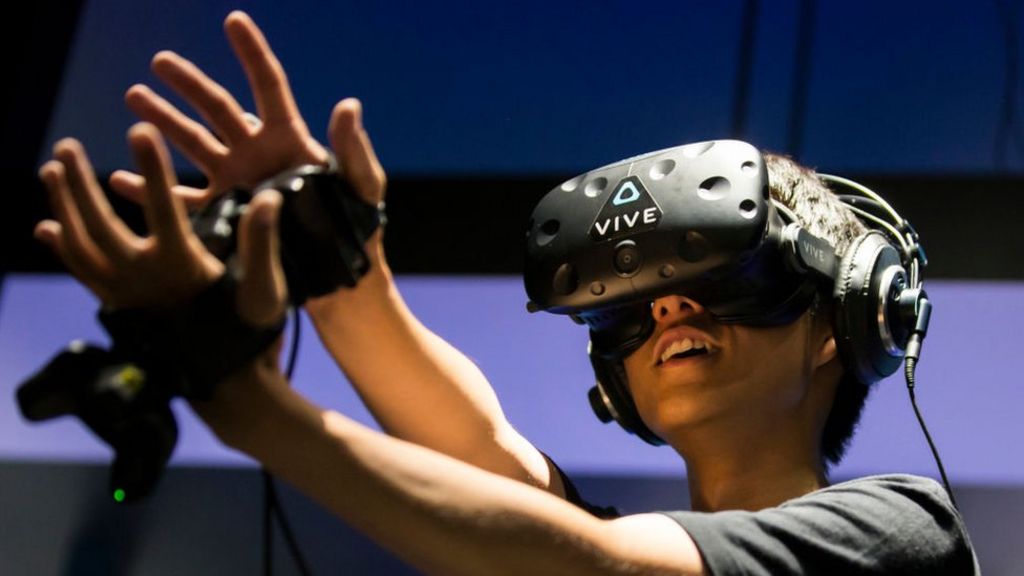HTC Shows Off All-in-one VR Headset Called Focus

 Image copyright
Getty Images
Image copyright
Getty Images
HTC has officially unveiled a standalone virtual reality headset called the Vive Focus.
The all-in-one gadget does not need to be connected to a computer or use a phone's screen to show images.
The move comes a month after Facebook's Oculus division unveiled plans for its own untethered headset.
HTC has not given any pricing or release dates for the Focus but did say it would initially be available in only China.
At the same time, HTC announced it had stopped working with Google to produce a standalone headset based on the search giant's Daydream technology. Lenovo is still working with Google on a headset.
The Vive Focus has an AMOLED screen and uses internal sensors to work out where a person is looking.
It gives users a greater ability to explore virtual scenes, as it will support six degrees of movement.
Current all-in-one headsets that use a smartphone's screen as a display typically have only four degrees of freedom - up, down, left and right.
With six, users can move their heads backwards and forwards and get a greater sense of their presence in a virtual scene.
"Six degrees of freedom tracking is a standard feature on high-end PC and console headsets, and, with its support, instantly elevates Focus above cheaper smartphone VR headset solutions," said games analyst Piers Harding-Rolls, from IHS Markit.
Mr Harding-Rolls said standalone headsets were the "end game" for wearable VR and it was "encouraging" to see HTC release one that could match PC versions.
He said HTC's the decision to release the Focus in only China made sense.
"China is the most advanced market for smartphone VR and for trying out higher quality VR at out-of-home venues," he said.
Headsets from Facebook, Google and Samsung were not officially available in China, he said, which could leave a vacuum for HTC to occupy.
HTC will face competition from Oculus, which is working on two untethered headsets.
The first, called the Oculus Go, matches the capabilities of smartphone-based headsets.
The other, called Santa Cruz, is an untethered version of its current, powerful Rift headset.
From Chip War To Cloud War: The Next Frontier In Global Tech Competition
The global chip war, characterized by intense competition among nations and corporations for supremacy in semiconductor ... Read more
The High Stakes Of Tech Regulation: Security Risks And Market Dynamics
The influence of tech giants in the global economy continues to grow, raising crucial questions about how to balance sec... Read more
The Tyranny Of Instagram Interiors: Why It's Time To Break Free From Algorithm-Driven Aesthetics
Instagram has become a dominant force in shaping interior design trends, offering a seemingly endless stream of inspirat... Read more
The Data Crunch In AI: Strategies For Sustainability
Exploring solutions to the imminent exhaustion of internet data for AI training.As the artificial intelligence (AI) indu... Read more
Google Abandons Four-Year Effort To Remove Cookies From Chrome Browser
After four years of dedicated effort, Google has decided to abandon its plan to remove third-party cookies from its Chro... Read more
LinkedIn Embraces AI And Gamification To Drive User Engagement And Revenue
In an effort to tackle slowing revenue growth and enhance user engagement, LinkedIn is turning to artificial intelligenc... Read more

